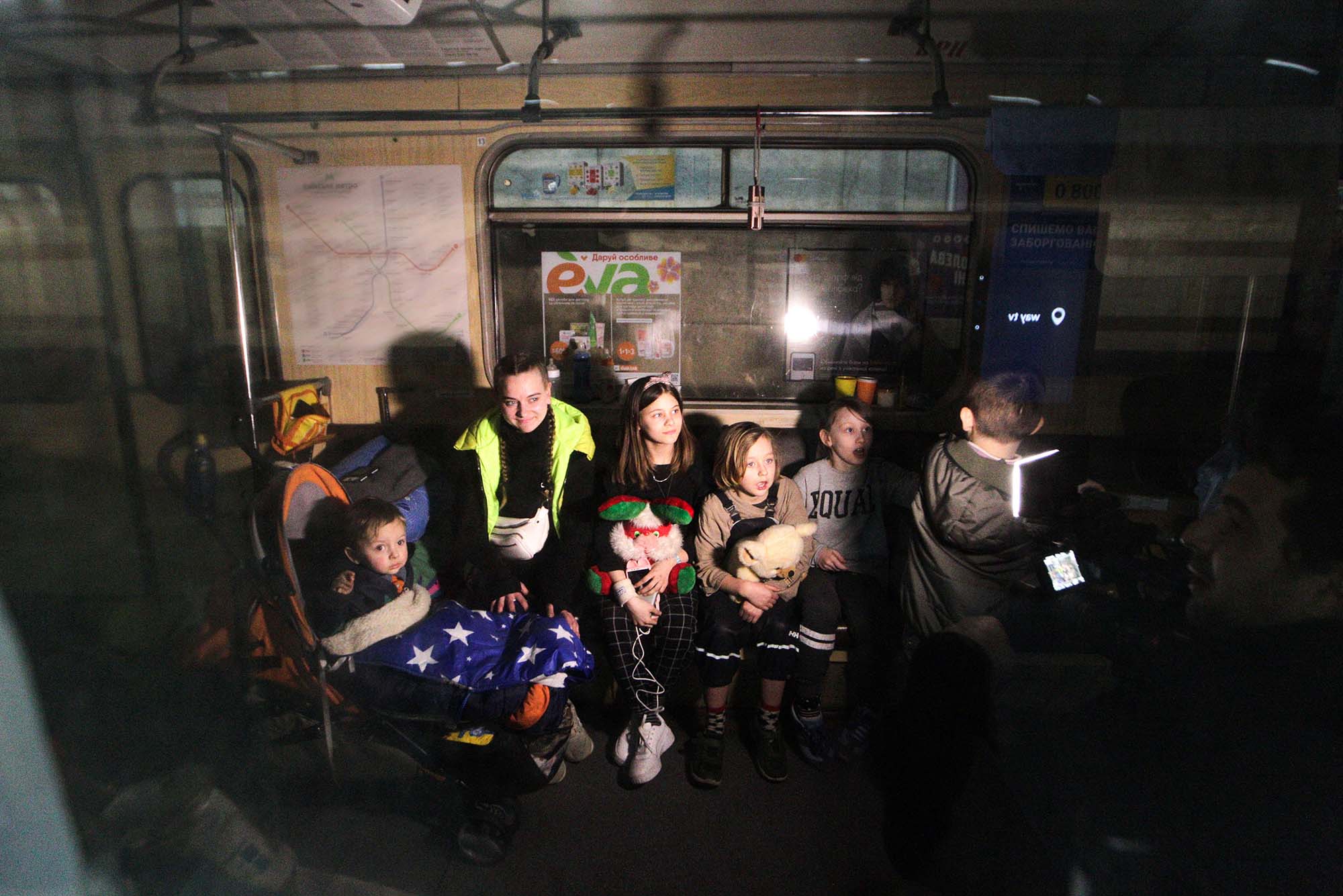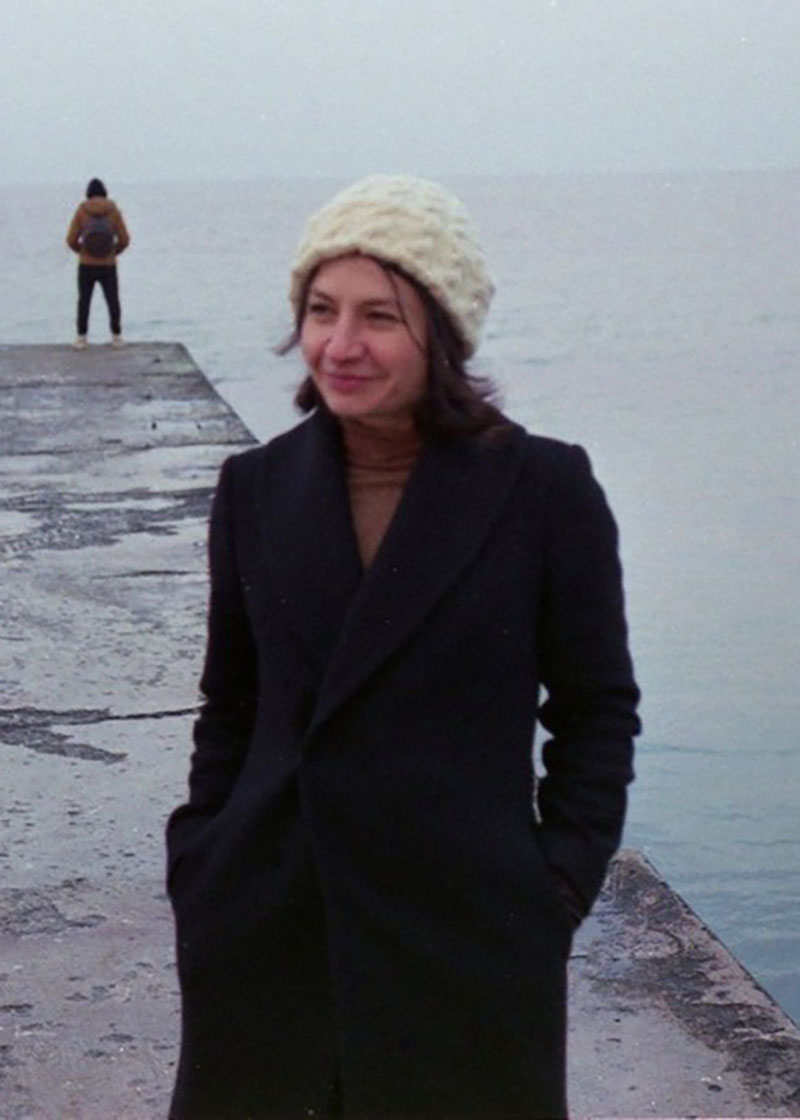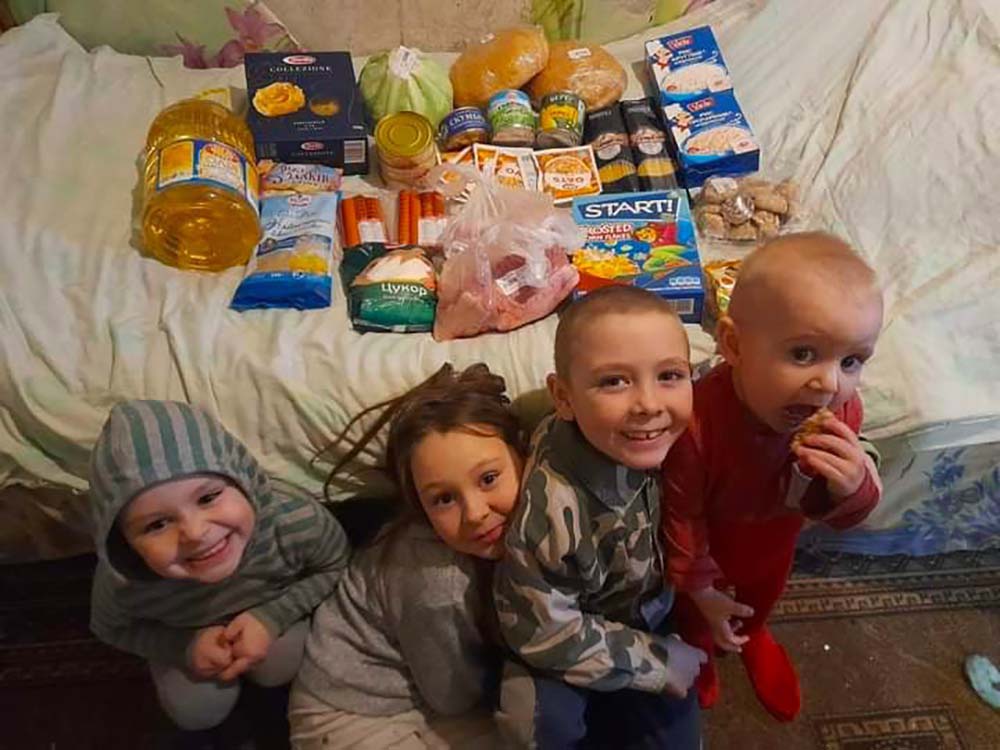BU Alum and Ukraine Native Organizes Aid for Her Homeland

Children in a metro station train car that’s serving as a bomb shelter. Since the Russian army invaded, millions of Ukrainians have been displaced from their homes and forced to seek shelter where they can. Photo by Yevhen Kotenko/Ukrinform/Future Publishing via Getty Images
BU Alum and Ukraine Native Organizes Aid for Her Homeland
Donations crowdfunded by Anastasia Piliavsky go directly to Ukrainians in need
The Washington Post recently reported that nearly one in four Ukrainians have been forced from their homes amid the ongoing invasion by Russia. Homes, hospitals, and markets have been bombed, creating a humanitarian crisis of increasing severity and prompting President Biden to call Russian leader Vladimir Putin a “butcher” and a war criminal.
Millions of Ukrainians have fled the country since the invasion began. Amid the bombings and loss of life, those remaining face a litany of difficulties: depleted food supplies, painful separation from friends and family, and lack of access to heat, electricity, water, shelter, and medical care, among numerous other challenges. Some Ukrainians have resorted to sleeping in subway stations to shelter from the shelling and bombing. Others have joined territorial defense units, volunteer groups of citizens committed to defending the country from the Russian army.
Anastasia Piliavsky (CAS’04), a King’s College London senior lecturer in politics and anthropology, who was born in Odessa and lives in Ukraine part-time, was horrified by the reports coming out of her native country. In February, the former Rhodes scholar put her academic career on pause and began organizing aid for her fellow Ukrainians, crowdfunding donations from a wide network of contributors that she then transfers directly to individuals, families, and volunteer groups.
“Instant relief continues. I am convinced that, for now, [direct aid] is the best way to help,” Piliavsky wrote recently on her Facebook page, where she shares updates about donors and recipients. “Aid from humanitarian organizations has not reached most yet. Credit is not available to most. Having instant cash in one’s bank account allows people to buy what they need just when they need it (as long as there are supplies) at the best prices. It keeps the economy going: shops remain open, people keep working, salaries keep coming.”

As a part-time Odessan, Piliavsky has a Ukrainian bank account. That allows her to instantly transfer funds from her account to recipients’ accounts (using banking and money-transferring apps). Those requesting help find her through social media and connections from her friends, family, and colleagues. She schedules a video call with each recipient—most often families trying to feed their children—to screen them before sending funds. She keeps detailed records of each person or family receiving help. If a donor would like, Piliavsky can connect them over video or the phone with English-speaking Ukrainians.
“It’s a completely homemade, made-up-on-the-spot system that grew out of me trying to support people as they were fleeing the country,” Piliavsky says, adding that direct transfers don’t come with overhead costs as donations to charities and nonprofits can. “The relief is immediate. Within seconds, someone who had $10 left in their bank account—and in many cases, less than that—can now go to the supermarket and buy supplies.”
So far, Piliavsky estimates that she’s raised almost a half-million US dollars in donations. Donors range from former coworkers and parents at her daughter’s preschool to Yale historian Timothy Snyder and former Daily Telegraph editor-in-chief Sir Max Hastings. Because there are myriad organizations helping refugees, she says, she’s been focusing her efforts on Ukrainians still in the country. About 70 percent of the donations she’s received have gone to some 1,200 families and individuals. The other 30 percent has gone to 45 or so volunteer organizations, such as a children’s art center in Kharkiv that set up an underground shelter for displaced residents.
Piliavsky has also been able to donate supplies—items like bulletproof helmets and fabric to make bulletproof vests, as well as night-vision equipment (no weapons, she stresses)—to territorial defense units, with donors’ permission.
“I’m not sure that donors in the West fully understand the significance of these civilian defense groups,” she says. “Everybody’s happy to give to refugees, to children, or to the elderly—people who are largely vulnerable and defenseless. That’s one front that I’ve been sort of battling with my colleagues: explaining that, for one, it’s a very insulting view of people to think that the only thing they can do is be helpless victims.

Children with the groceries their family was able to purchase thanks to donations crowdfunded by Piliavsky and her volunteers. Photo courtesy of Piliavsky
Children with the groceries their family was able to purchase thanks to donations crowdfunded by Piliavsky and her volunteers. Photo courtesy of Piliavsky
“But not only have these civilians stood up to defend their country—they’ve been absolutely vital to the way the war has gone down,” she says, noting that the fact that Russia has struggled to take Kiev is due in large part to territorial defense groups operating with little formal aid or training.
Since her campaign began, Piliavsky has spent all of every day fielding calls and messages from donors and would-be recipients. She now has two regular volunteers helping her manage screenings and distribution. The three are able to help 50 to 60 families a day—or roughly 1,000 individuals fed, clothed, warmed, and evacuated every day, she estimates.
For Ukrainians, the relief cannot come soon enough. Piliavsky’s Facebook page is full of photos of families posing with groceries the donations have enabled them to purchase. Thank-you notes and tearful messages come in daily, she says.
“I’m convinced that in 95 percent of cases, if not more, the aid is used to buy the right things,” she says. “People are buying exactly what they need with the money we send them. Many need much more than [what a charity decides they need]; they need insulin and firewood; they need to replace broken glasses or a pair of shoes; they need a pair of crutches.
“I recently took a call from a woman whose house was destroyed in Vinnytsia and who’s since moved to a village with three children and a disabled husband. That’s the sort of situation I hear every day—I can hear sirens in the background on these calls, and see broken buildings through the window [on video calls]. It is impossible to exaggerate the effect of such donations. They do not just let people eat and stay warm; they give hope, or at least take the edge off despair.”
Most recently, Piliavsky has been working with doctors in Odessa and Nikolaev to try and collect medical supplies from contacts in the European Union. Of course, she’ll eventually return to her career and personal life, but until then, she says, she’ll keep doing what she’s been doing: waking up each day and helping her fellow Ukrainians as much as she can.
To donate to Anastasia Piliavsky’s direct-aid fund or to find more information, visit her website. Piliavsky can be reached at apiliavsky@gmail.com for specific donation requests or questions.
Comments & Discussion
Boston University moderates comments to facilitate an informed, substantive, civil conversation. Abusive, profane, self-promotional, misleading, incoherent or off-topic comments will be rejected. Moderators are staffed during regular business hours (EST) and can only accept comments written in English. Statistics or facts must include a citation or a link to the citation.